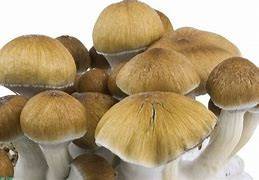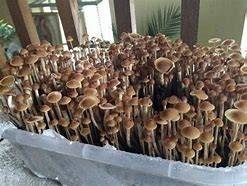5 things you need to know about microdosing uk
microdosing uk might feel like a recent phenomenon, but its history is almost as old as modern psychedelics. Albert Hoffman, the Swiss chemist who was the first person to synthesise and…
Microdosing might feel like a recent phenomenon, but its history is almost as old as modern psychedelics. Albert Hoffman, the Swiss chemist who was the first person to synthesise and ingest LSD, believed that “very small doses, perhaps 25 micrograms [of LSD], could be useful as a euphoriant or antidepressant”.
While microdosing has gained popularity in recent years thanks, in part, to its popularity with Silicon Valley tech bros, it’s been practised by underground psychonauts for years. Recent studies into the relationship between psychedelic drugs and depression have cast a new interest on the practice with internet searches for microdosing having increased tenfold over the past five years.
What is microdosing uk ?
For the uninitiated, microdosing can seem confusing. In simple terms, microdosing is taking a sub-perceptual dose of a substance in order to test or benefit from its physiological action while minimizing undesirable side effects.
People have been experimenting with microdosing a wide range of substances, but most commonly people experiment with taking small amounts of psychedelic drugs such as LSD or psilocybin-containing magic mushrooms.
Just like the substance used, people practice different schedules or protocols for microdosing. Common examples of protocols include every other day, two fixed days a week, or taking a microdose for 4 consecutive days followed by three rest days.
Why do peoplemicrodosing uk ?
People choose to microdose for a lot of reasons. The Microdosing Institute lists over 28 reported reasons people choose to microdose.
Increasing creativity is a common motive. People believe a small dose of a psychedelic substance can trigger a similar increase in mental activity felt on larger doses, without the disruption of a full blown trip. Others are turning to microdosing to try and alleviate mental health issues such as anxiety and depression. While some are using microdosing to help improve concentration, problem solving, productivity and decision making.
Does microdosing actually work?
While the practice has existed for decades, until recently, reports have been very much anecdotal, based on the single experience of an individual. In fact, up until the last few years, there has been little to no scientific evidence to back up these claims.
Now, thanks to a new wave of interest and research into the power of psychedelic drugs, scientists are beginning to understand the mechanics of microdosing more clearly. One of the earliest controlled studies into microdosing showed that when subjects were given a small dose of LSD, they showed changes in their perception of time, a common experience when taking larger doses of the drug.
A study by the Beckley Foundation published in 2020 examined whether a low dose of LSD could reduce the perception of pain. The study indicated that a 20 microgram dose of LSD significantly reduced pain perception when compared to a placebo, increasing tolerance of pain by 20%, results comparable to those observed after administration of opioids, such as oxycodone and morphine in healthy volunteers.
Is microdosing legal in the UK?

Both of the drugs commonly used for microdosing, LSD and psilocybin-containing magic mushrooms are listed as Class A drugs under the Misuse of Drugs Act. They are illegal to possess or supply. For possession, people can face up to 7 years in prison and a fine. For supply and production, people can face life in prison and a fine.
Because of this, possession of even small amounts of these drugs makes them illegal. It’s unlikely that someone caught with 5-10 microdoses would face a custodial sentence, but it’s possible, and would lead to a caution at best, which could have implications on work, travel and education.
Is microdosing safe?
As microdosing uk is in its infancy in terms of studies, there is very little data to suggest microdosing is either safe or dangerous. Again, anecdotal studies and reports rarely show any potential for harm, but just because a microdose is small, it doesn’t mean absolute safety.
microdosing uk and LSD both rank at the bottom end of a chart showing the harm to users and others produced by Professor David Nutt in 2010. However, there are still risks associated with consuming any substance. People with a history of psychosis, paranoia or a family history of severe mental health issues should avoid psychedelic substances regardless of the dose until further scientific research is complete.

Unless you are microdosing uk in a clinical setting, the substances you consume will be purchased illegally. Therefore, there is a risk of contamination, unknown dose strength or mislabeling. Some of these risks can be mitigated by using a testing kit, but ultimately while the UK peruses a pointless policy of drug prohibition, there remains an inherent risk that the substance being used isn’t what a consumer expects. The safest way to reduce this risk is to grow magic mushrooms at home, however, this carries obvious legal implications.
